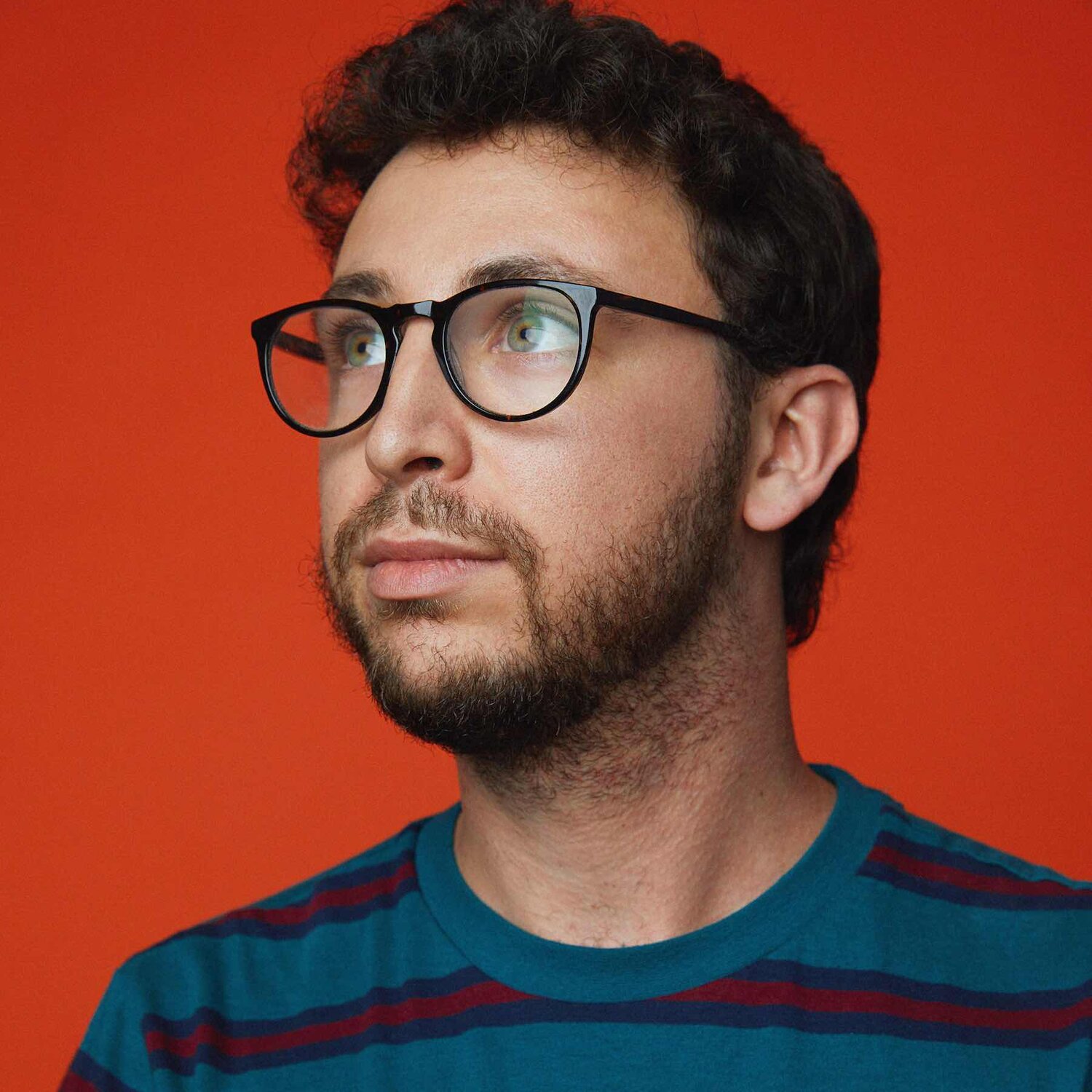Adam Cohen, AB ’15, discusses how studying film and cognitive psychology jump-started his career as a producer and director in Los Angeles, the benefits of student community, and working on the Netflix show "I Think You Should Leave."

In 2015, Adam Cohen graduated from the College of Arts & Sciences with a degree in philosophy-neuroscience-psychology. Since then, he has produced and directed commercials, TV shows, and a full-length feature film. In a conversation with the Ampersand, Cohen emphasized the importance of creative work and his transdisciplinary education at WashU.
How has your perspective on filmmaking changed over time?
When I was six years old, I made a short film called “Super Bear.” I rigged a teddy bear to the banisters in my house and then flung it across the room while filming with a camcorder. I wanted to make action movies at the time.
Before I came to WashU, I was a perfectionist; I wanted to make the next great American movie. I would still love to be part of making something like that. But throughout college and my career, I’ve gained some perspective on what really matters to me. And at the end of the day, I’m just really grateful to be making cool shit.
How did you benefit from the film community at WashU?
Associate professor Colin Burnett’s film and media studies classes gave me a completely different perspective on filmmaking. Instead of just communicating a plot through action, I learned that you could use formal visual techniques to tell your story. That has really helped me think outside the box as a producer and director.

The student club Washington University Television (WUTV) was great for providing the community and network that I needed. Using the film gear that WUTV and the Film and Media Studies program had to offer, I was able to create short films, commercials, and music videos with other students. Even after I graduated, the connections I had with those students helped me find jobs and creative partners in LA.
What have you been up to since you moved to LA?
After working as a production assistant on short films and commercials for a while, I went freelance for about six years. I started working on features and TV, which eventually led me to connect with the production company Irony Point.
Irony Point was producing a lot of Netflix shows at the time, including Tim Robinson’s “I Think You Should Leave,” an amazing sketch comedy show I was lucky to be a part of. For the second season, I was production supervisor, which entailed overseeing a variety of people who supported all of the departments on set. Basically, I was helping lay the foundation for the creative side of the show to be a success.
What was a memorable moment from working on that show?
One of the more popular sketches in “I Think You Should Leave” is “Dan Flashes” in season two, where Tim is obsessed with buying a bunch of shirts with complicated patterns. Imagine a film crew taking over a whole parking lot and floor of a building — that's basically what we did for “Dan Flashes.”
Naturally, people came by and wanted to know what was going on. The default answer is usually, “a mayonnaise commercial.” But this time, a crew member told someone, “I Think You Should Leave.” Without realizing that was the title of the show, that person left the parking lot screaming, accusing us of defamation.
What work have you directed recently?
I just co-directed my first feature film called “GOLD MINE,” which should be completed in the next few months. I’d describe it as a merging of the sci-fi and western genres. Based on the interest we have so far, its release will involve festival runs and theatrical runs in some cities.

“GOLD MINE” is all about entering different states of consciousness through virtual reality — exploring trauma and grief in a virtual context. I learned a lot about those topics in my philosophy-neuroscience-psychology (PNP) seminars at WashU.
How did majoring in PNP shape your film career?
In my sophomore year, I got involved in research on the cognitive psychology of film perception. I worked on an experiment led by Jeff Zacks, chair and professor of psychological and brain sciences, where we tested how cuts between cameras at slightly different positions would affect spatial memory.
That research helps guide my decisions as director today. There are certain things that aren't as important to visual attention and spatial memory as established film rules make them seem. I got to learn that in a way that a lot of film students don't.



